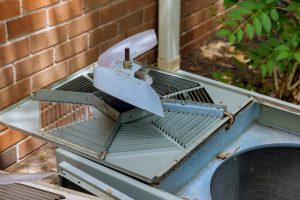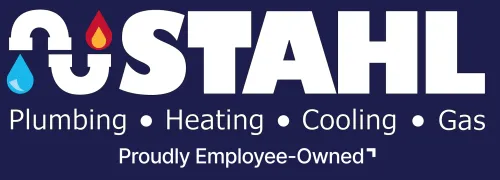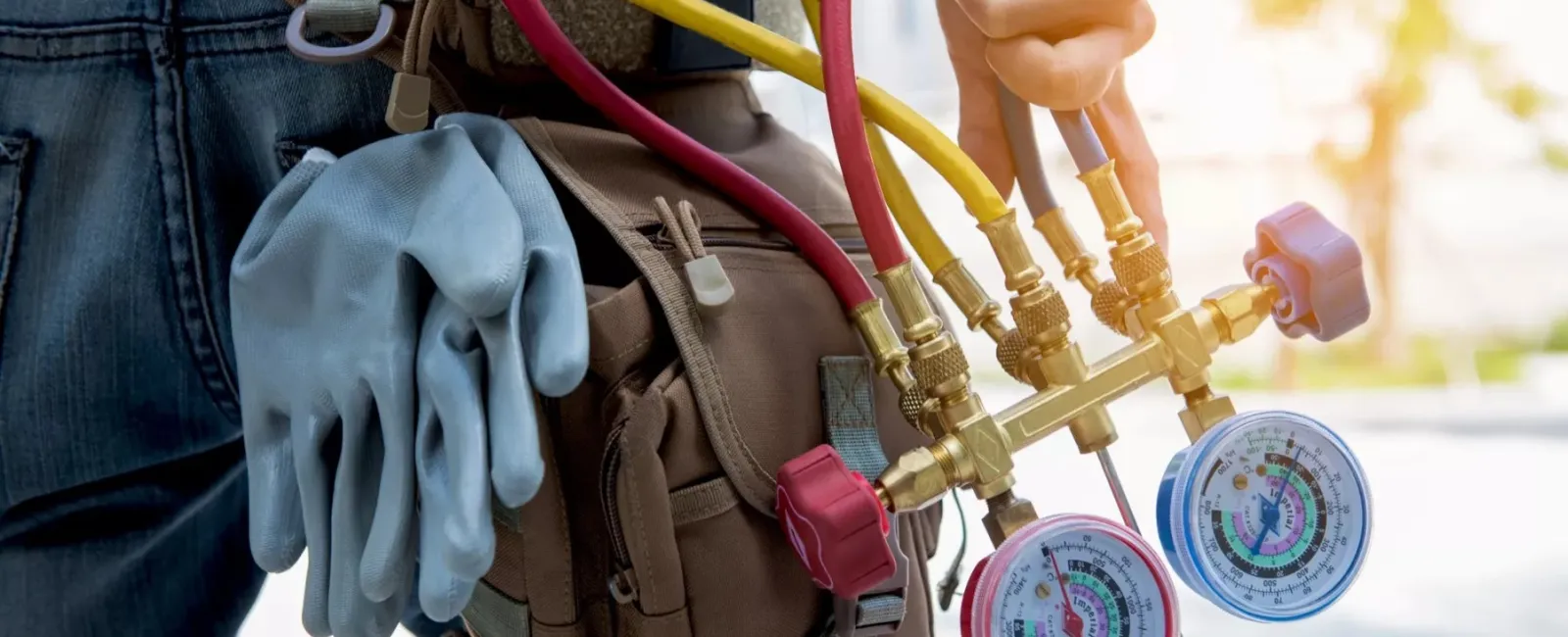While many homeowners might never have even noticed the condensate line on the side of their air conditioner, this small drain pipe plays a crucial role in the proper functioning of your A/C unit—and when it becomes clogged, A/C cooling problems aren't far behind.
Whether you handle A/C maintenance on your own or bring in an HVAC expert to handle your A/C cleaning and tuneups, it's easy to overlook an HVAC drain line cleaning. If this line is neglected long enough, mold and other debris and growths can gradually create a partial clog, and even a full clog that disrupts your A/C unit's functioning.
Worried your air conditioner might already be suffering from a clogged A/C drain line? Here's how to spot this problem—and how to get your air conditioner back in working order.
Signs Your Condensation Line is Clogged
While the drain line itself is easy to miss, the signs of a clog are much easier to spot. These signs include:

- Dripping or standing water. Leaking water around the A/C unit is a clear sign that the drain pipe is blocked. As a result, condensate is forced to find other outlets to drain out of the air conditioner.
- Mold in your A/C drip pan. The presence of mold is a sign of water accumulation, even if the drip pan isn't holding water when you inspect your A/C unit. Mold in the drip pan may also be accompanied by a moldy odor in your home. This is the mold spores being blown into your interior air from the air conditioner. In some cases, a moldy odor—which is stronger when the A/C is running—may be your first sign that the drain line is clogged.
- Standing water in the drip pan. When water isn't draining properly, water will accumulate in the A/C drip pan. It may also end up overflowing, which could indicate a full blockage in the condensation line.
Risks of a Clogged Air Conditioner Drain Line
If left unaddressed, a clogged drain line can cause problems for both your air conditioner and your home's interior. A buildup of condensate inside your A/C unit can turn the appliance into a breeding ground for mold, which can then deliver a steady flow of mold spores into your home. Mold spores can be a health risk to you and everyone living in your home, increasing your risk of respiratory issues depending on your level of exposure to these spores.
Those mold spores can also find a home and lead to the growth of new mold colonies inside your residence. Meanwhile, the water building up in your air conditioner can increase the wear and tear on your appliance, potentially breaking mechanical components and throwing your A/C unit into disrepair—leading to increased maintenance and repair costs.
In serious circumstances, water damage to your A/C unit could become so extensive that the entire appliance needs to be replaced.
How to Unclog an A/C Drain Line
If you decide to try and unclog the A/C drain pipe on your own, you can take several DIY approaches to solving the problem on your own.
The first strategy to try is using suction to remove the clog. A wet-dry vacuum may be all it takes to clear out the clog, assuming you're able to get a good seal on the drain line.
If suction doesn't work, you can also try clearing out the drain line using warm water and/or warm distilled vinegar. If the A/C drain pipe is clogged after trying these home remedies, it's time to contact a heating and cooling expert who can properly clean out the drain line.
Prevent A/C Drain Clogs With Regular Tuneups
While clogged condensate lines are both a hassle and a liability for your air conditioner, they're also easily avoided with the appropriate appliance maintenance. HVAC experts typically recommend that homeowners get an air conditioner tuneup at least once a year. This tuneup is a great opportunity to not only clean out the drain line, but to also inspect other components of your air conditioner to make sure everything is in proper working order—and to reduce the risk of a mechanical breakdown when you're relying on your A/C unit to cool your home.
If you've had issues with a clogged drain line in the past, it's always helpful to let your HVAC specialist know. This also keeps your drain line top-of-mind with the technician, ensuring the line is properly cleaned to avoid clogs and the complications they bring.
As with any major appliance or machinery, prevention is always cheaper than repair. Once you've fixed the clog in your A/C drain line, make it a priority to stay on top of cleanings and keep your unit in proper working order.

